17 Worst Things You Can Do When Booking a Flight
Avoid airport stress with these expert travel tips.

You've finally arrived at your gate, and you're eager to board the plane for a long-awaited vacation, now that many COVID-19 travel restrictions have been relaxed. Just then, you realize you might miss your connection because you chose a quick layover, or you have to pay a ton for your carry-on since you didn't read the airfare fine print. These are just a few of the common (yet crucial!) mistakes people make when arranging flights. But, don't worry, we're here to help. Below, we've rounded up the best tips on how to avoid stressful booking blunders.
1
Don't glance over hidden fees.
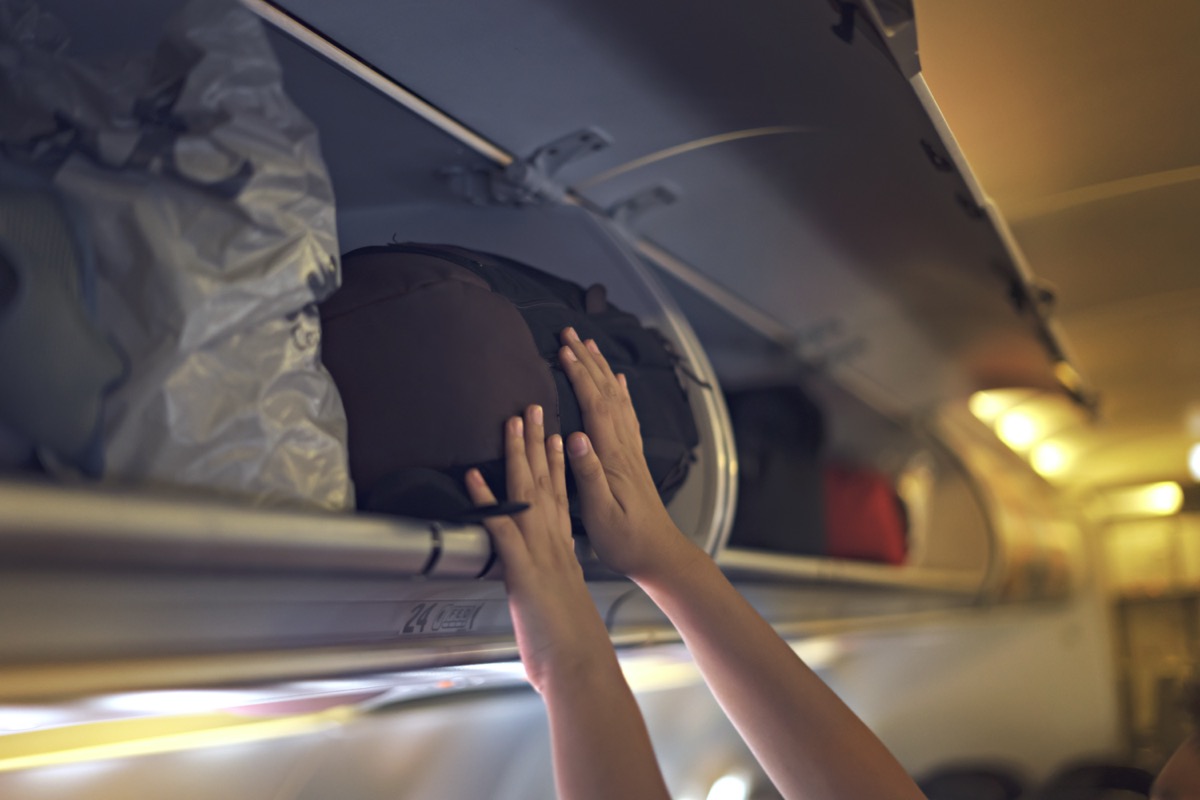
Sure, that Spirit—or Frontier, Ryanair, or other discount airline—ticket might look like one heck of a deal, but if you factor in the extra costs, these seemingly cheap fares could end up setting you back just as much if not more than a full-service flight. From the $5 to $16 it costs to reserve a seat on Frontier to the €55 airport check-in fee charged by Ryanair, many low-cost carriers have ridiculous fees hidden in their fine print.
Spirit is one of the worst culprits as a carry-on bag tacks on an additional $29 to $65 per leg. Even some of the legacy carriers, like United, don't include overhead bags on their domestic Basic Economy tickets. So passengers who show up to the gate with a full-sized carry-on have to pay a $25 gate-handling charge.
2
Don't buy group tickets in bulk.

Airlines often sell separate fare classes at different prices. For example, if you're searching for four tickets, and there's only one seat left in the lowest fare class, most websites will only display the highest fare class for all four tickets. "Try searching one at a time, just in case there are limited seats on sale," suggest the deal experts at Travelzoo. "This way, you'll rest assured that at least some, if not all, of your tickets, were purchased for the lowest possible price."
3
Don't forget to research visas first.
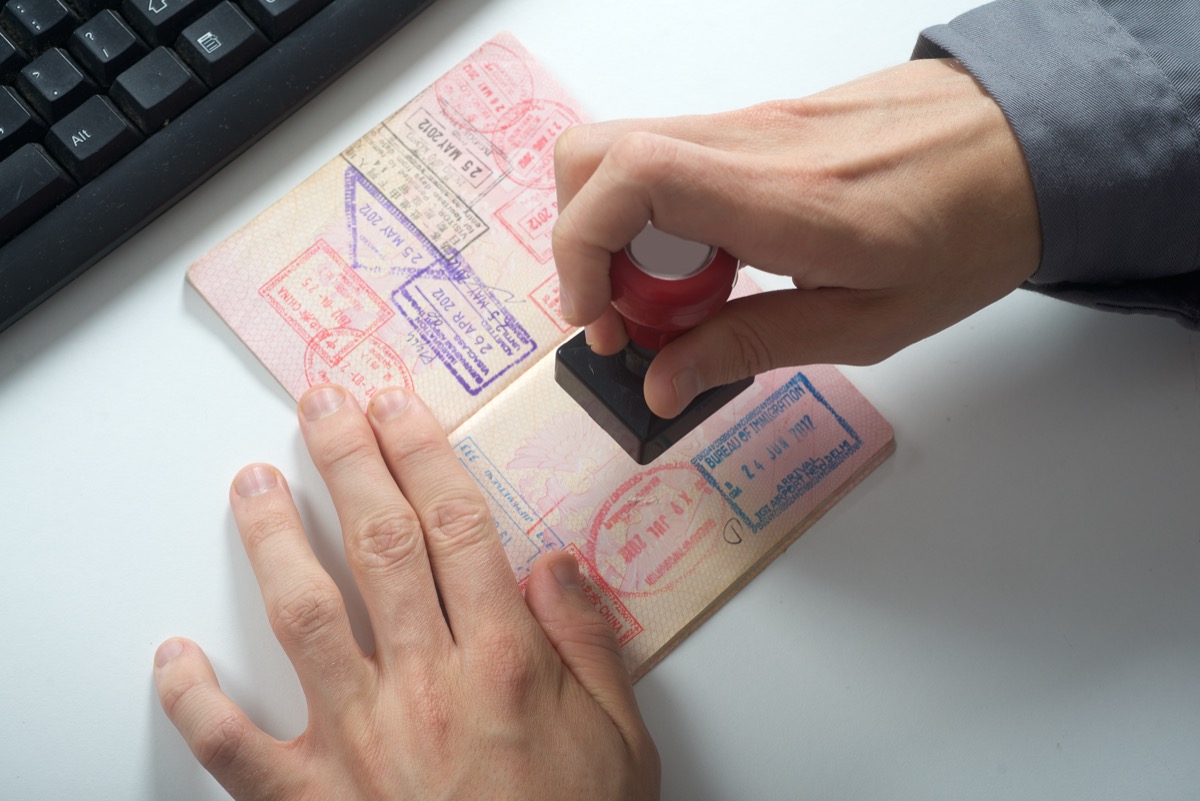
Right now, U.S. citizens have visa-free access to 174 countries and can get a visa on arrival for many other nations such as Indonesia, Ethiopia, Laos, Lebanon, Nepal, and Rwanda. But that is not the case everywhere—some countries have a long process to obtain a visa that could get in the way of last-minute flight deals. "While much of Europe is accessible for U.S. citizens visa-free, travelers interested in Russia must submit to a lengthy and expensive visa application process," says Travel + Leisure.
Pro tip: Get the scoop before you book by checking Allied Passport for a guide to every country's visa requirements.
4
Don't let your passport expire.
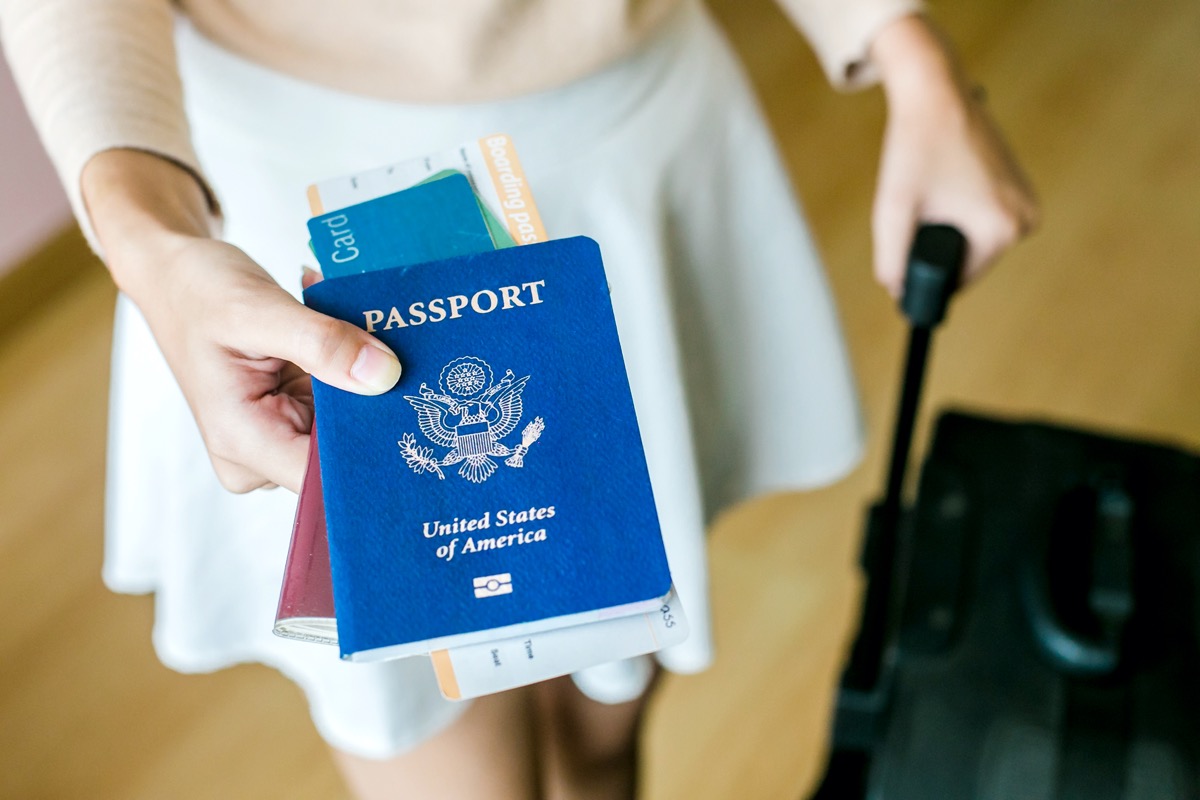
Even if your passport will be valid for the duration of your trip, certain nations won't let you in if you're nearing its expiration date. "Many countries, including Belgium, Thailand, China, Ecuador, and more, require three to six months of passport validity upon entry—so even if you have a valid passport, you might be stopped at customs, and it could compromise your trip," SmarterTravel editor Shannon McMahon told CNBC.
The time frame to renew an adult passport is six to eight weeks if you want to pay the standard $110 fee, or you can get it back in about eight days if you pay an extra $60 and go directly to a passport agency. Really on a time crunch? You can receive it as fast as 24 hours if you're willing to fork over a whopping $449 to FedEx and another $170 to the State Department, along with overnight shipping fees.
5
Don't underestimate the power of flex pricing.
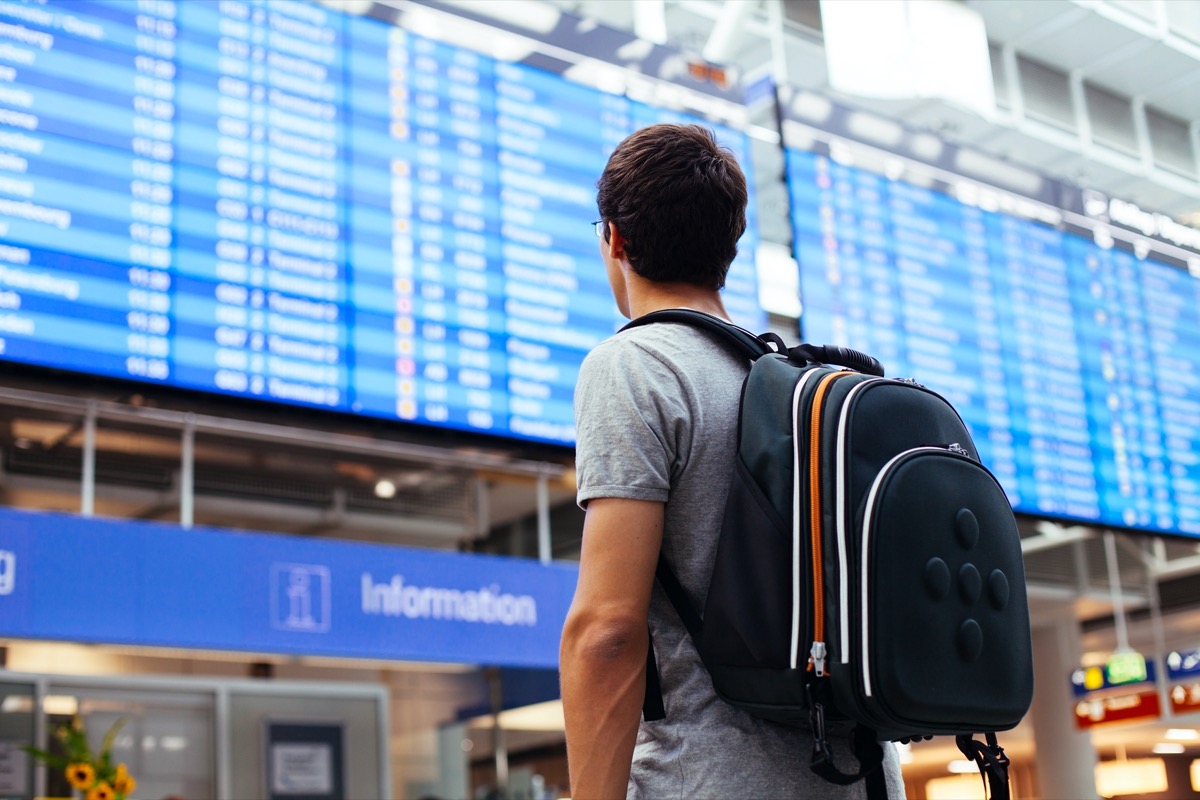
Sometimes you have set plans and need to fly into a specific airport on a certain day. However, if your travel plans are flexible, you could save yourself a lot of money. Travelers who can swing a mid-week departure or a trek to smaller airports may be able to pick-up some serious deals.
According to Hopper, domestic flyers willing to depart on a Wednesday and return on a Thursday could save about $45 per ticket. And opening the search to other local airports can help you pocket even more money. The Points Guy's JT Genter saved over $500 by flying to Hong Kong from Houston rather than from his hometown of Austin. "If you use Google Flights to search your itinerary, it'll automatically check nearby airports for savings, and some online travel agencies (OTAs) also have the option to search nearby airports," he says. "It can't hurt to check the box and see if you can save a bundle by making your drive to the airport a little longer."
6
Don't book outside the "sweet spot."
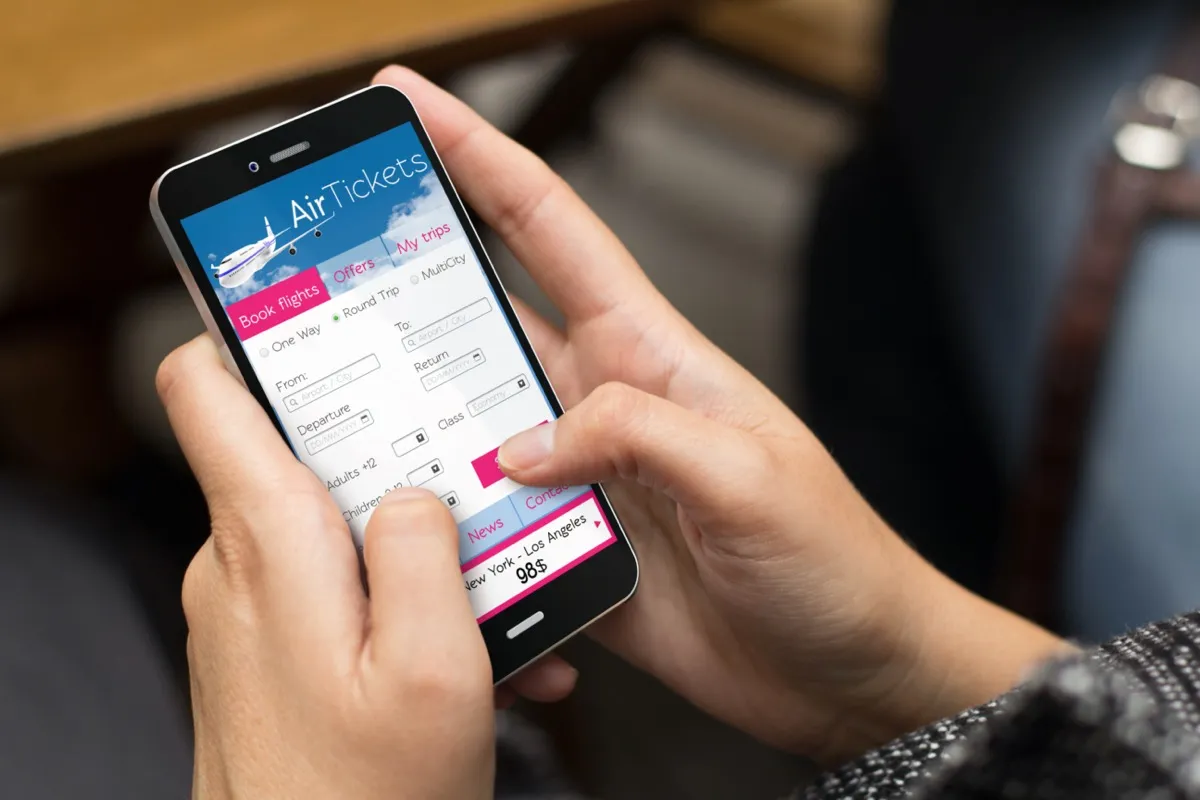
One would think that booking a ticket super early or scoring an unfilled seat at the last minute could lead to some serious deals. Turns out that's rarely—if ever—the case. According to travel blogger Nomadic Matt, "There is a sweet spot when the airlines begin to either lower or increase fares based on demand."
Pro tip: The best time to find a deal is six to eight weeks before departure for off-peak or shoulder-season travel and around three months for trips during the more desirable time of year.
7
Don't skip your known traveler number.
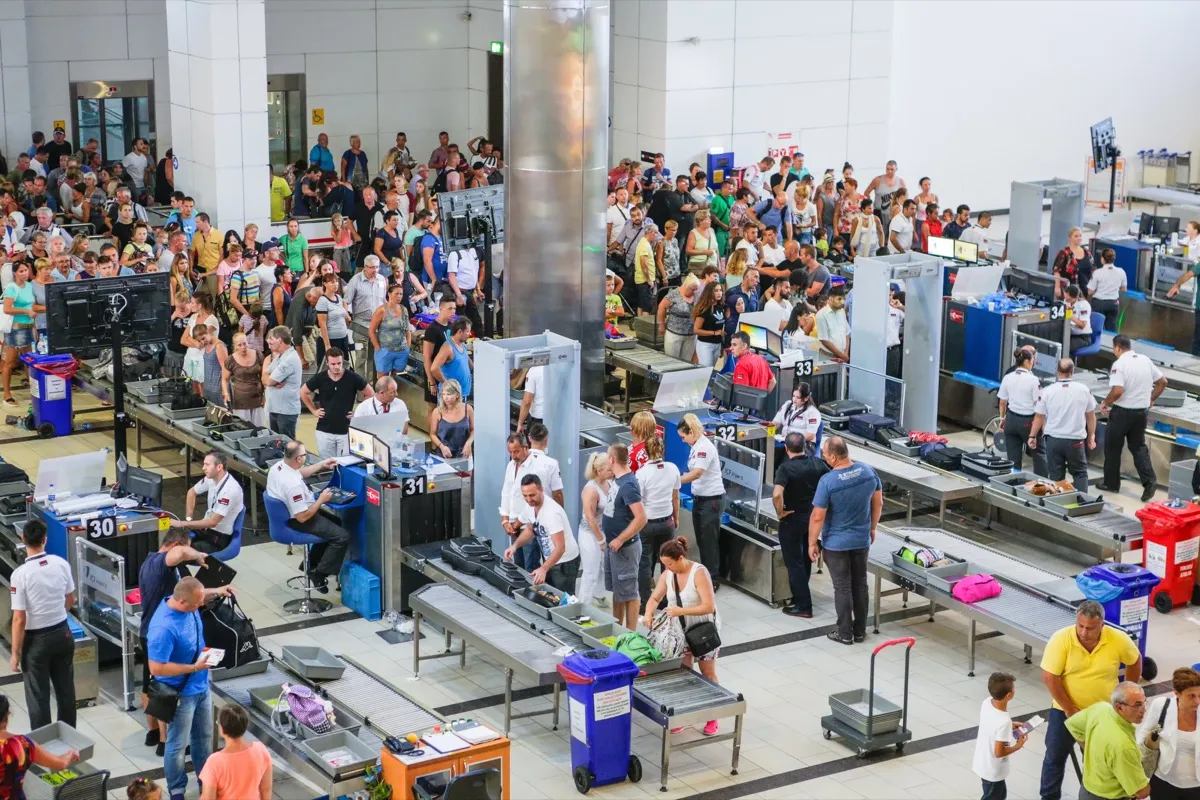
If you've gone through the hassle and paid the money for TSA PreCheck, do not forget to enter your Known Traveler Number to your reservation from the get-go. If it is added too late, you might miss out on PreCheck for the flight and be stuck in a dreadful snaking security line.
8
Don't skip your frequent flyer number.
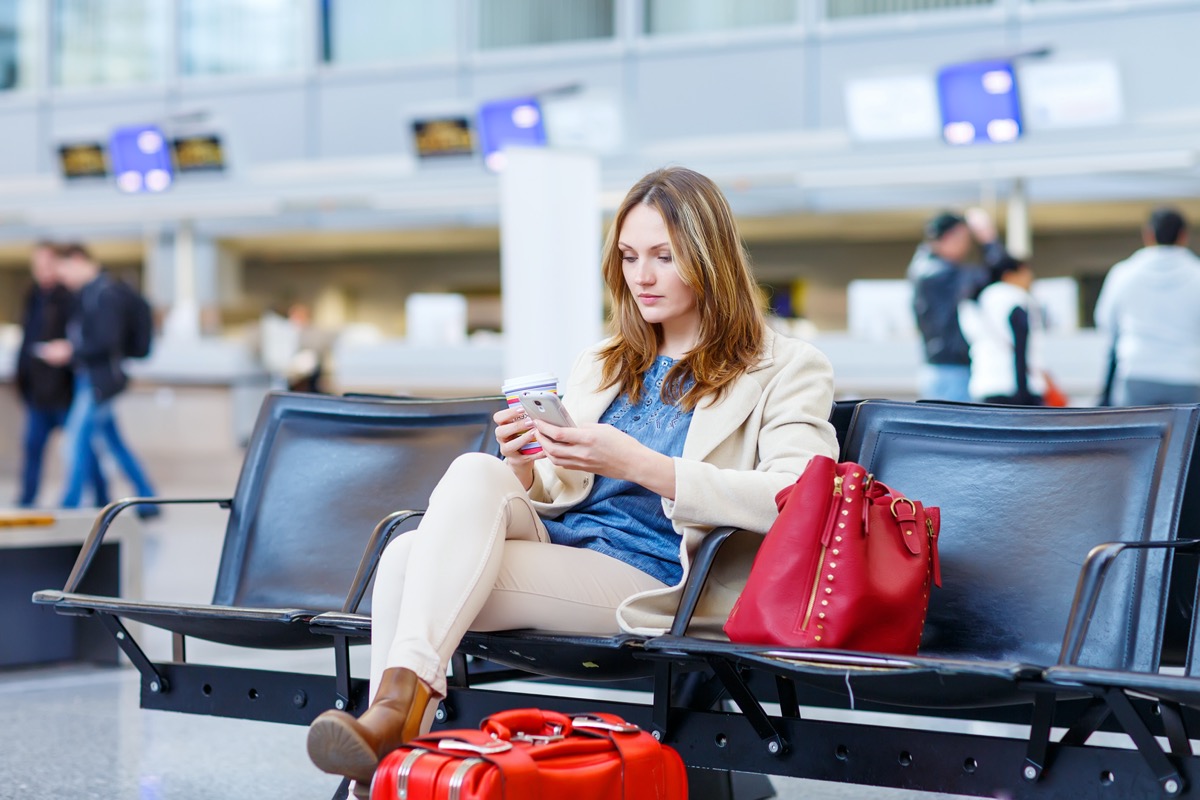
You're paying for the ticket, you might as well get the credit. Even short flights add up over time and can help extend the expiration date of your miles in many programs. Plus, if you happen to be traveling with someone who has some sort of status, the two of you might get an upgrade, access to the lounge, or some other fun perks.
9
Don't purchase airline travel insurance.
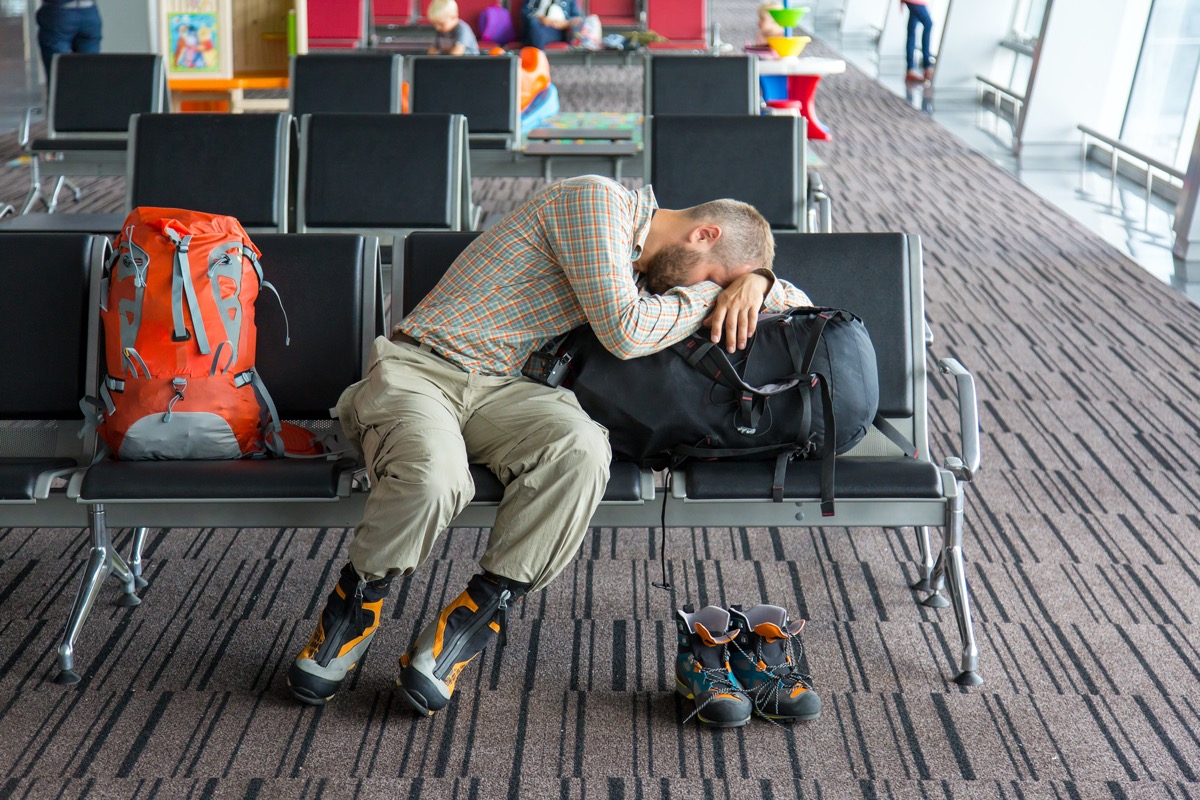
You might be tempted to fork over the extra fees for flight insurance during check-out, especially if you're going to airports known to have lots of delays (looking at you Chicago O'Hare). But it's not worth it if you already secretly have travel insurance through your credit card. According to The Points Guy, some credit cards like Citi Prestige and Chase Sapphire Preferred will cover travelers up to $500 for lengthy delays.
10
Don't overlook the in-flight experience.
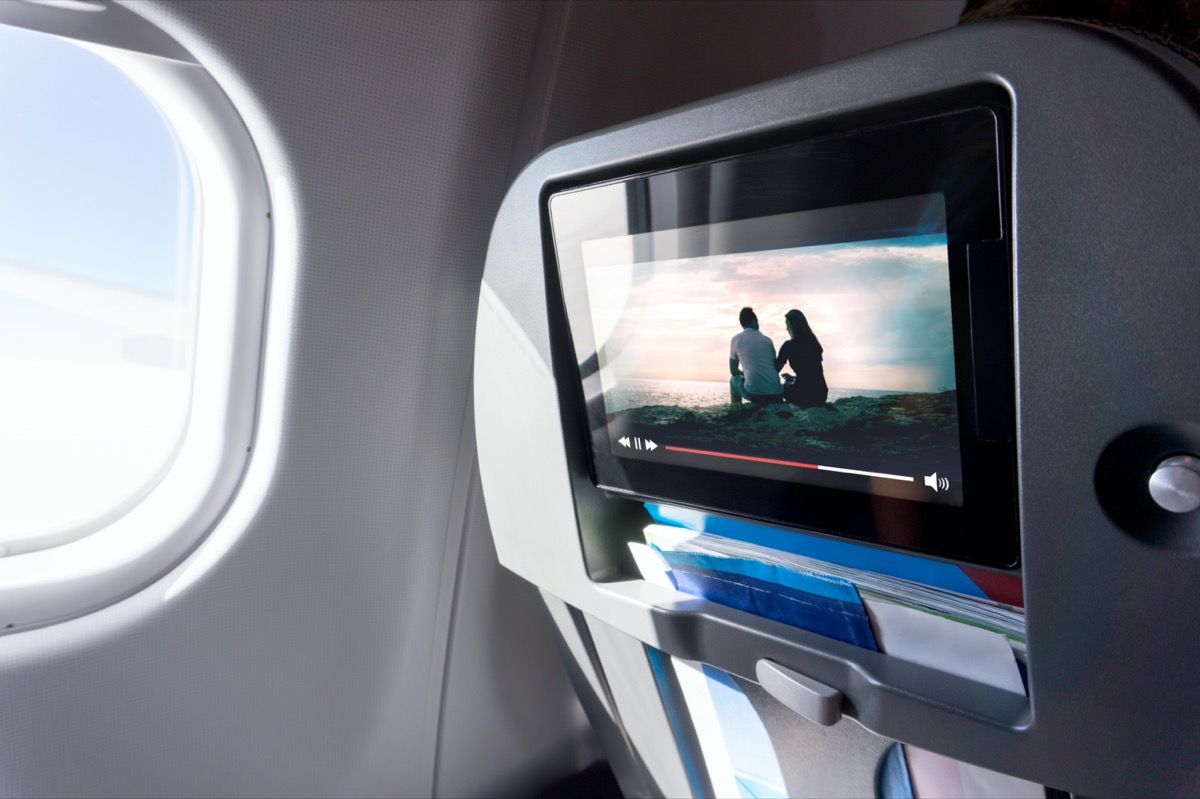
While you certainly feel it en-route, few travelers think about the in-flight experience when booking a ticket. Does it really matter if you have outdated overhead projectors or little legroom on a two-hour trip? Probably not. But on a long-haul flight or redeye, an uncomfortable plane could really impact the first days of your getaway. Browse SeatGuru to compare seat pitch (i.e. legroom), video types, WiFi, and other amenities when you're weighing the deals.
11
Don't enter a different version of your name than what's listed on your passport.

It's easy to miss how you've listed your middle name on your passport or whether you've updated it to your new married (or post-divorce) name. And for overseas airlines, the order of first and last names can be different from U.S. carriers. That once happened to journalist Danielle Bernabe when making an international booking. "I noticed after I couldn't find my flight," she says. "When I called to figure it all out, they wanted to charge me $1,000 [because they said] they would have to cancel and rebook the flight." Fortunately, when Bernabe turned up at the check-in counter the day of her flight pretending she didn't notice the mistake, the ticket agent corrected the boarding pass "without a blink," she says.
12
Don't confuse destination names.

Travel writer Lauren Mowery's husband once landed in Canada, walked outside the terminal with his bag and got a call from his colleague who was supposed to be picking him up. When the husband said he was outside with his bag, the colleague asked, "Wait, which St. John did you fly to?" Turns out, he booked a flight to St. John's, Newfoundland, instead of Saint John, New Brunswick, causing him to turn up a day late to the job site.
If you want an idea of just how often this happens, try Googling "Sydney, Australia + Sydney, Nova Scotia." More than one confused tourist has ended up traveling to Canada instead of Australia. It's so easy to confuse places with the same name—like Portland, Maine (PWM) and Portland, Oregon (PDX).
13
Don't click the wrong dates.
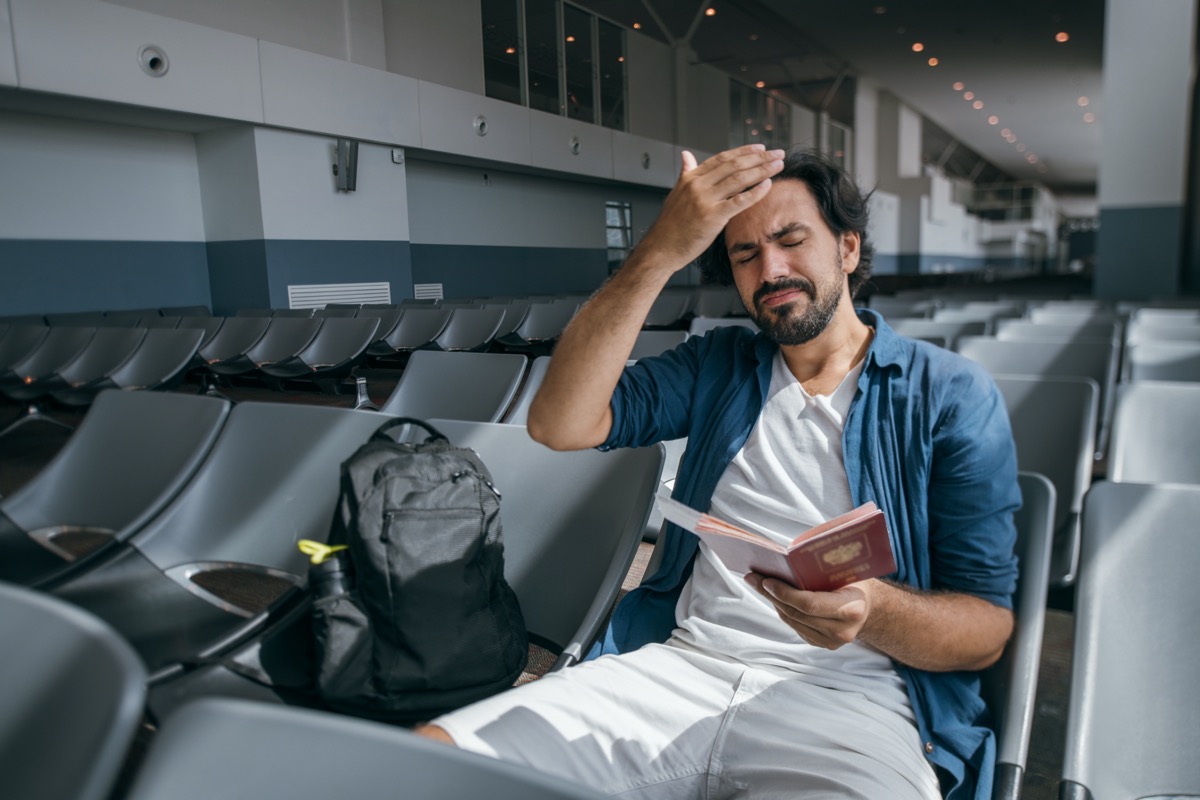
When you're in the heat of scoring a great deal or stressed about booking a trip, it's easy to rush through the purchase process without double-checking the dates—and, yes, this is another mistake this writer has experienced first-hand (on more than one occasion!). It's easy to mistake "JUL" for "JUN," click the same day on a different week of the pop-up calendar or get confused by another country's method of listing the date, month, and year. And be careful with any early morning or late-night departures; it's easy to confuse flights that leave or arrive after midnight.
14
Don't let a good deal pass you by.
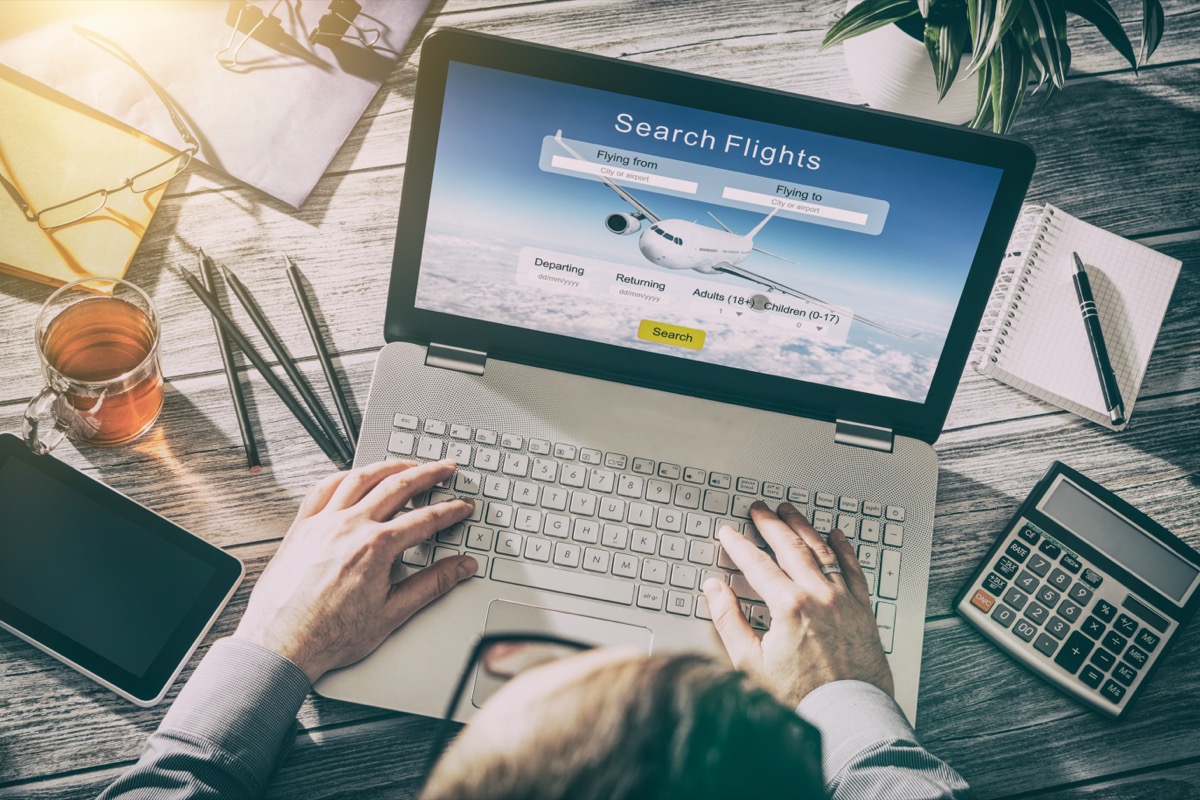
Let's say you've spotted what looks like a killer fare from New York City to Madrid, but you haven't confirmed whether your travel buddy can make the trip. If you've cross-checked the price against other sites and are open to going either way, just book the darn ticket. According to the folks at Airfare Watchdog, you've got a full day to cancel or make changes, but you need to read the fine print if you're going through an OTA: "If you do book, and happen to see a better fare immediately after, you can take advantage of the DOT's 24-hour hold policies that allow you to cancel your booking without penalty."
15
Don't book a connection that's too tight.
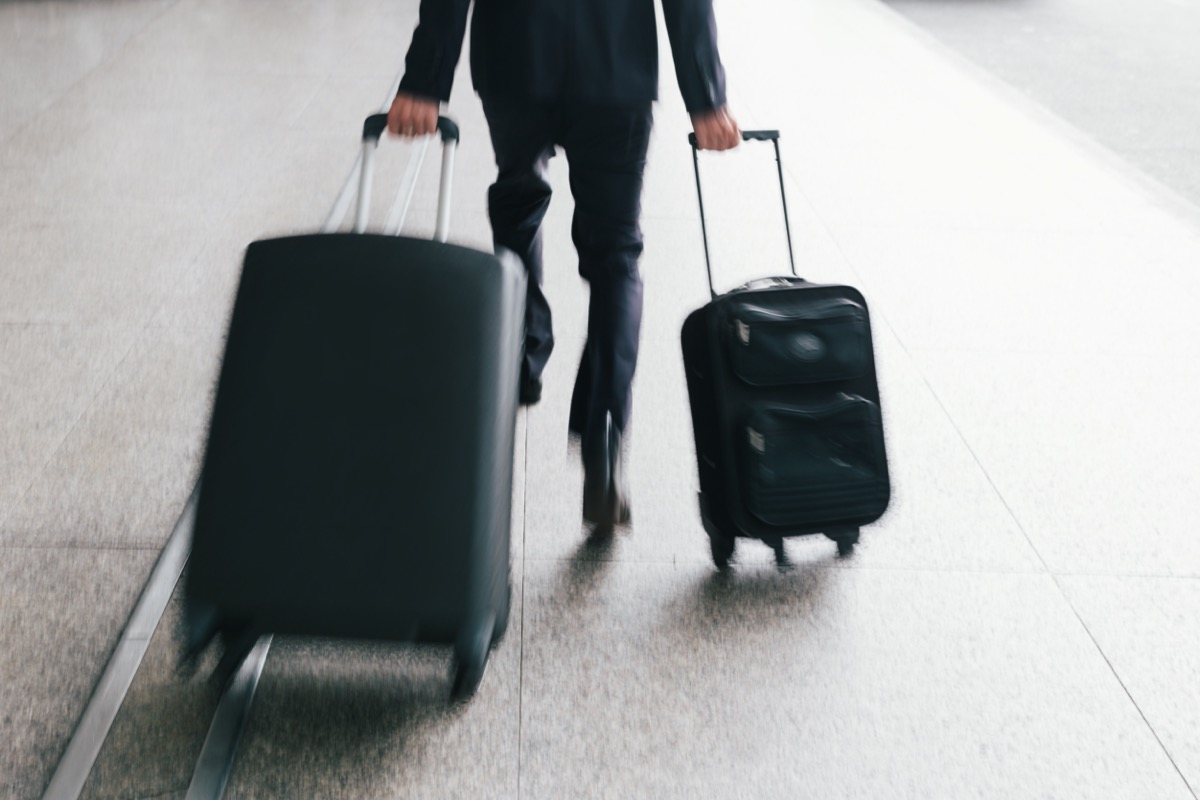
While you don't want to travel any longer than necessary, cutting it too close could make the trip super stressful—or worse, you could miss your connection all together. An hour might seem like a perfectly reasonable amount of time to make your way from one gate to another on a domestic flight. But when your LaGuardia departure is delayed by a couple of hours due to a storm, and you miss your connection in Charlotte, forcing you to spend the night in an airport hotel, thereby turning your six-hour trip to Salt Lake City into a nearly 24-hour affair—as was the case for this writer earlier this year—you'll wish you had a bit more time to spare on the layover.
The general rule of thumb is to avoid domestic connections that are less than an hour and international layovers shorter than two, but remember, a bit more time hanging in the terminal could potentially save you a ton of hassle in the end.
16
Don't waste time with long layovers.
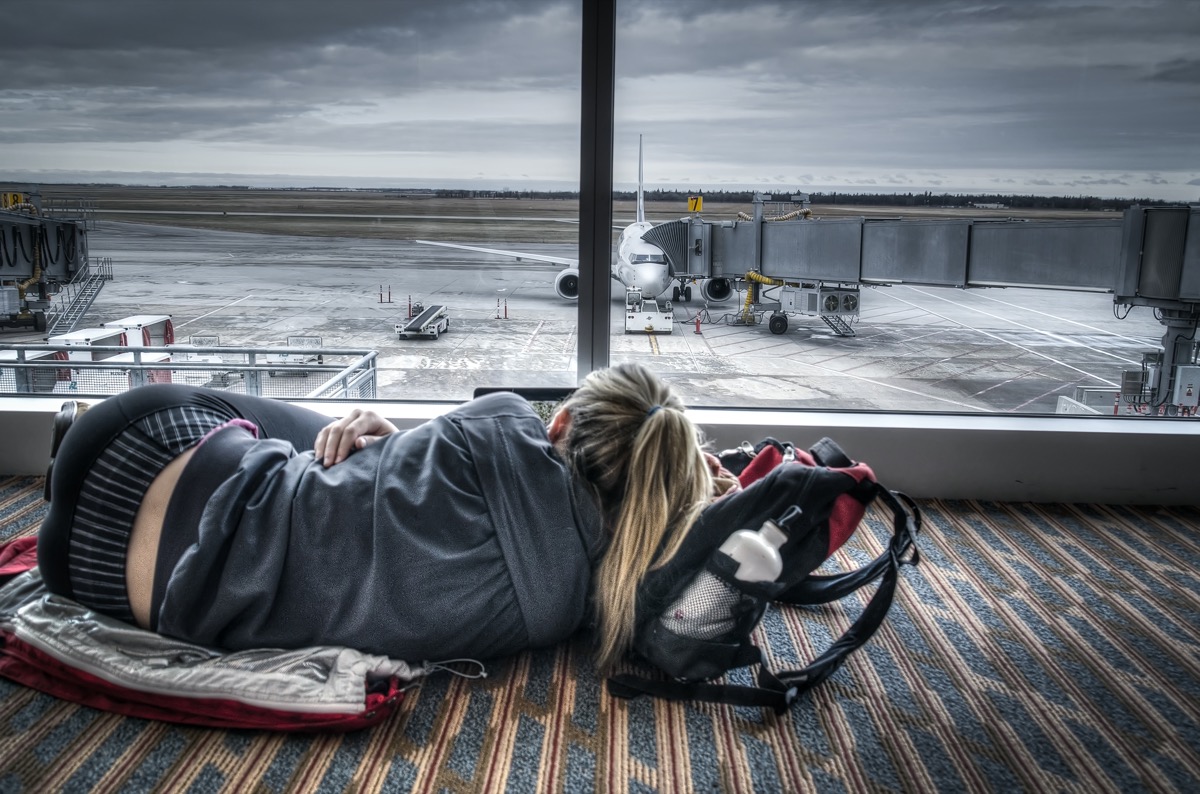
Sure, a direct flight may be more expensive, but if what should be a five-hour trip from New York to Los Angeles takes triple the time due to multiple layovers or even just one extremely long and inconvenient stop, it's just going to leave you feeling like a wreck when you arrive. Pay a bit extra for a non-stop route or book a different flight with an easier transfer.
17
Don't choose cost over convenience.
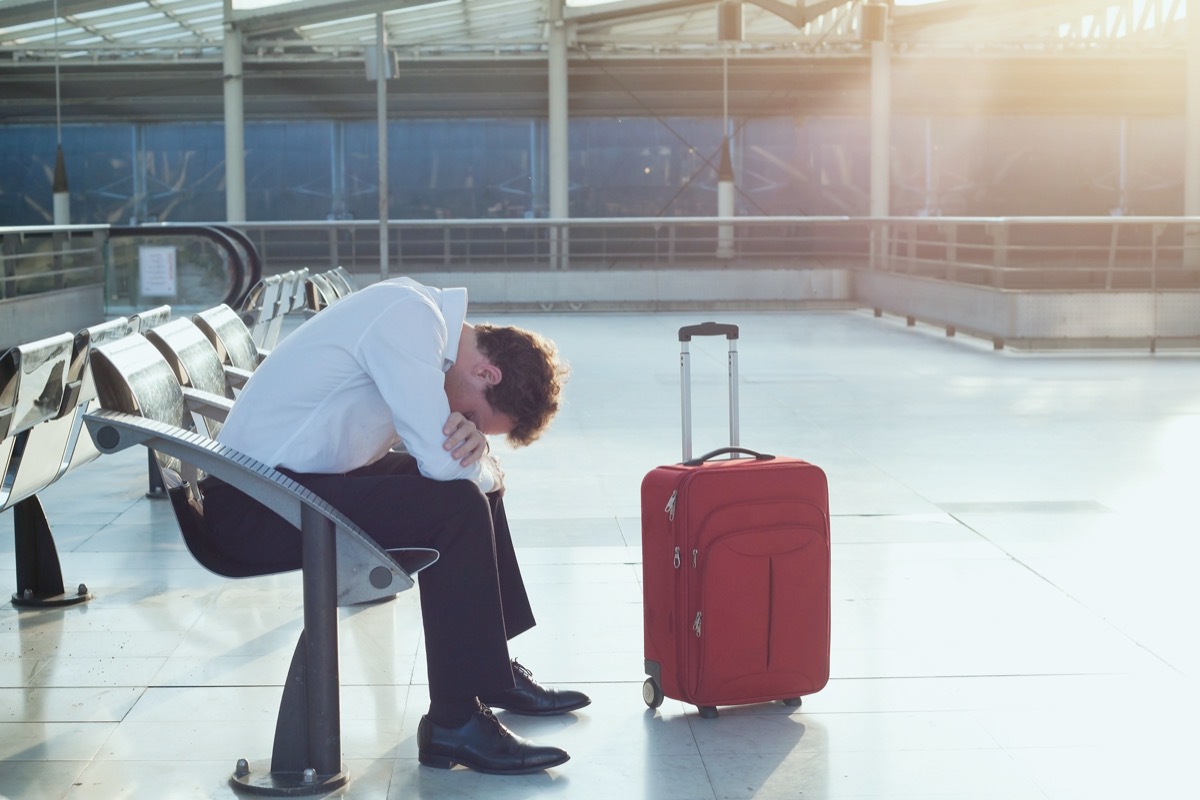
Lower-priced fares can be tempting, but sometimes the extra savings aren't worth the time or extra cash. Those cheap flights could require an expensive taxi ride, an overnight stay in an airport hotel, or an exhaustingly long day of travel. Is saving $30 worth waking up at 3:30 a.m. for a break-of-dawn flight? We think not.
For more airline insight, check out the 20 Shocking Secrets Your Flight Attendants Won't Tell You.





















